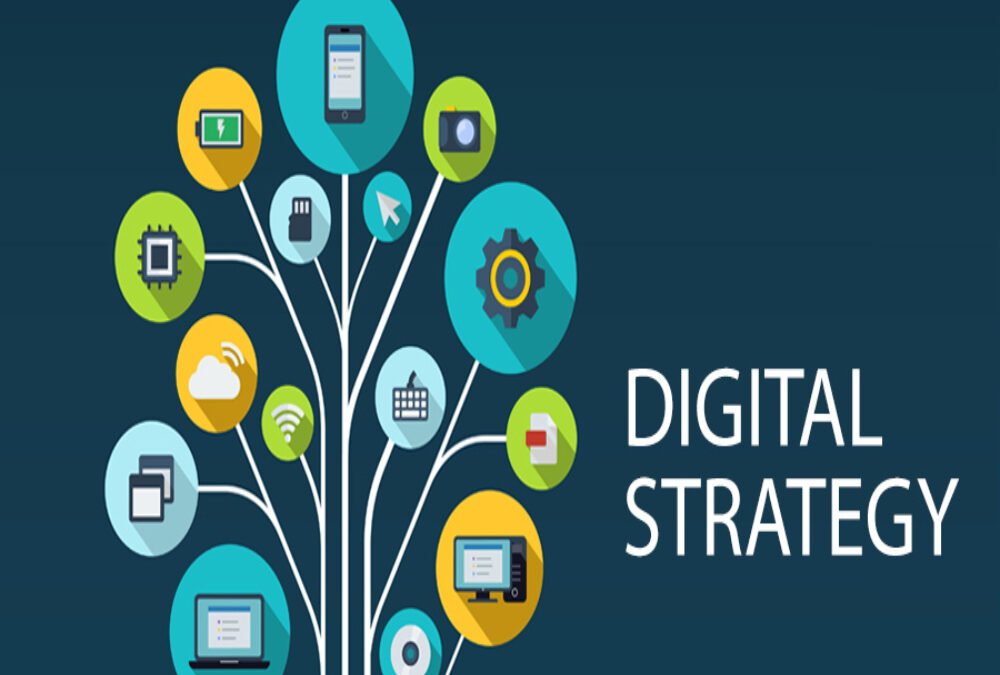Introduction
In the fast-evolving world of commercial real estate and property sales, adopting a digital sales strategy is no longer optional but essential for success. Digital transformation in sales has redefined how properties are marketed, how buyer engagement is nurtured, and how transactions are closed. A well-implemented digital sales strategy leverages technology, data analytics, and modern communication channels to build relationships, create demand, and drive faster sales. Understanding the intricacies of digital sales strategy implementation helps businesses stay competitive, responsive, and customer-focused.
Foundations of a Strong Digital Sales Strategy
Building a strong digital sales strategy begins with establishing clear objectives that align with business goals. These may include increasing lead generation, improving conversion rates, expanding market reach, or enhancing customer experience. The foundation also requires an in-depth understanding of the target audience, including their digital behaviors, preferences, and purchasing patterns. Once the groundwork is laid, businesses can select the right mix of digital tools and platforms to deliver their message effectively and build meaningful engagement.
Creating High-Impact Digital Content
Content is at the core of any digital sales strategy. High-quality digital content educates, informs, and inspires potential buyers. In the real estate sector, this might include virtual tours, drone footage of commercial spaces, blog articles about market trends, and detailed e-brochures. The focus must be on creating content that addresses the specific needs and pain points of the audience. Visual storytelling, detailed property insights, and case studies add depth and credibility, making it easier to build trust and drive action.
Utilizing Omnichannel Digital Marketing
Implementing a successful digital sales strategy requires an omnichannel approach, where multiple digital touchpoints work together to create a seamless customer journey. Websites, social media platforms, email marketing campaigns, digital advertisements, and real estate listing portals all play crucial roles. Each channel must be optimized for its specific audience and purpose but also aligned in messaging and branding. By integrating different digital channels, businesses ensure that prospects can interact with them smoothly, regardless of the platform they choose to engage with.
Leveraging Data and Analytics for Continuous Improvement
Data is the backbone of digital sales strategy implementation. Every interaction online, from website visits to email opens and social media engagements, generates valuable insights. By tracking and analyzing these data points, businesses can better understand what drives customer behavior, which strategies work best, and where improvements are needed. Implementing Customer Relationship Management (CRM) systems and advanced analytics tools helps in segmenting leads, personalizing outreach, forecasting demand, and measuring overall sales performance.
Building a Seamless Digital Sales Funnel
A digital sales funnel outlines the customer’s journey from awareness to decision. Successful implementation involves creating targeted awareness campaigns to attract prospects, nurturing those prospects with personalized content and communication, and smoothly guiding them to conversion. This requires strategic landing pages, lead capture forms, automated follow-up emails, and responsive customer support. Automation tools also play a significant role in ensuring timely interactions and reducing manual efforts, allowing sales teams to focus on closing deals rather than administrative tasks.
Training Sales Teams for Digital Excellence
No digital sales strategy can succeed without a knowledgeable and adaptable sales team. Digital sales require different skills compared to traditional methods. Sales teams must be trained in using CRM systems, conducting virtual meetings, personalizing digital communication, interpreting digital behavior cues, and utilizing online marketing tools. Regular workshops, certifications, and digital literacy programs ensure that the sales force remains agile and effective in a technology-driven environment.
Overcoming Challenges in Digital Sales Strategy Implementation
While digital strategies offer numerous advantages, challenges such as data privacy concerns, rapid technology changes, platform fatigue, and increasing digital competition must be addressed. Businesses need robust cybersecurity measures, agile adaptation to new technologies, continuous audience research, and a focus on delivering genuine value to stand out in a crowded digital landscape.
Conclusion
Implementing a digital sales strategy is a transformative journey that demands thoughtful planning, strategic execution, and ongoing refinement. By laying a strong foundation, creating compelling content, adopting an omnichannel presence, leveraging data insights, and empowering sales teams, businesses can unlock new levels of growth and customer engagement. In an era where digital interaction shapes customer decisions more than ever, mastering digital sales strategy implementation is the key to achieving sustainable success and maintaining a competitive edge in the market.
Hashtags
#DigitalSalesStrategy #SalesImplementation #MarketingStrategy #BusinessGrowth #SalesReview #DigitalMarketing #SalesOptimization #StrategyExecution #EcommerceSuccess #LeadGeneration #SalesPerformance #BusinessStrategy #OnlineSales #SalesAnalytics #CustomerEngagement #SalesTrends #DigitalTransformation #SalesManagement #RevenueGrowth #MarketingInsights

